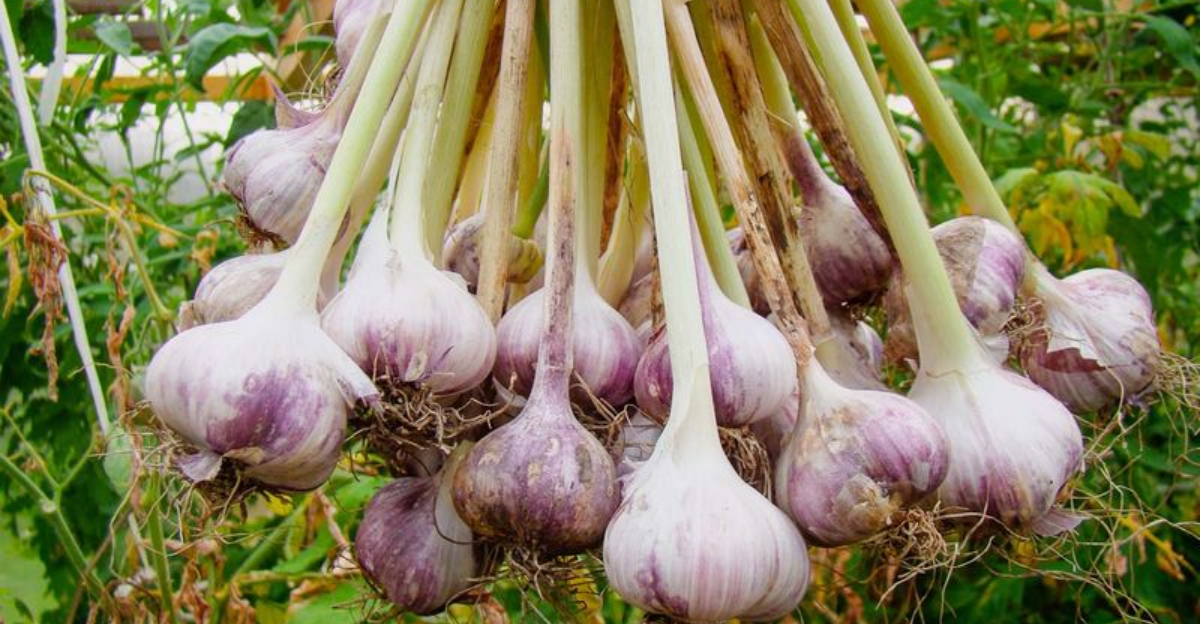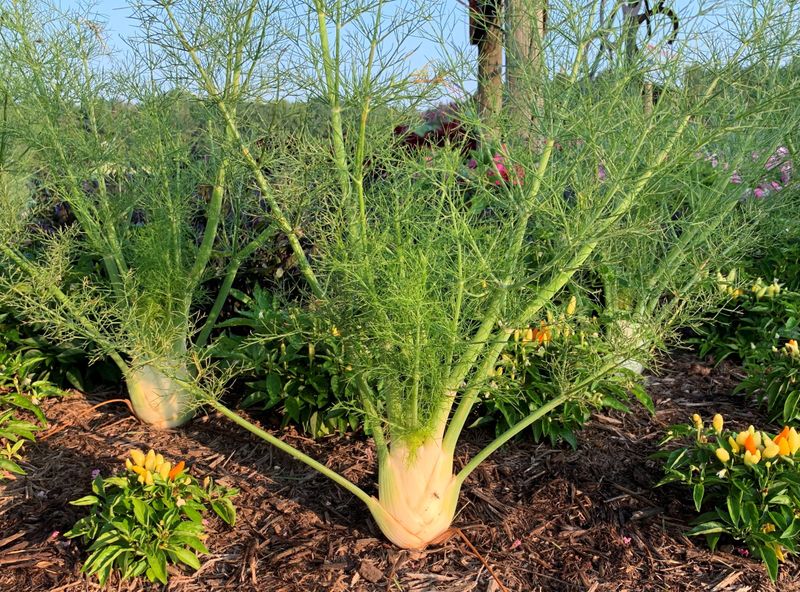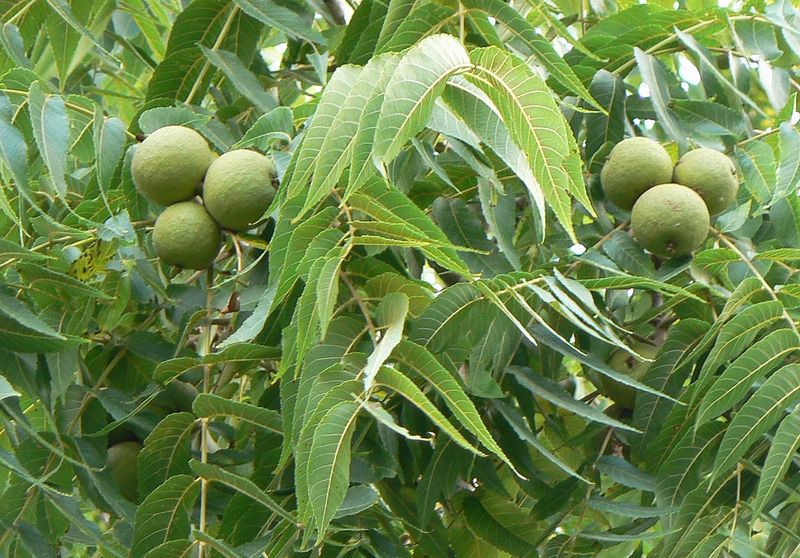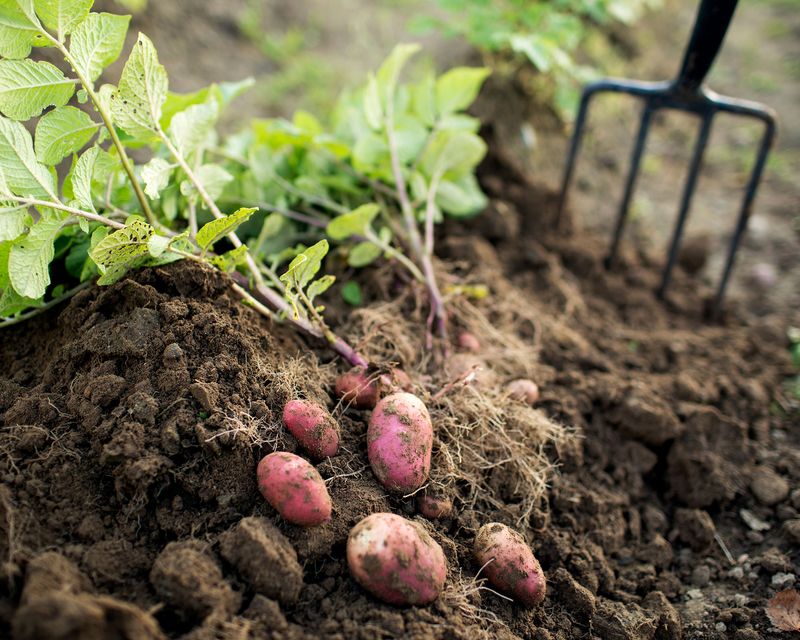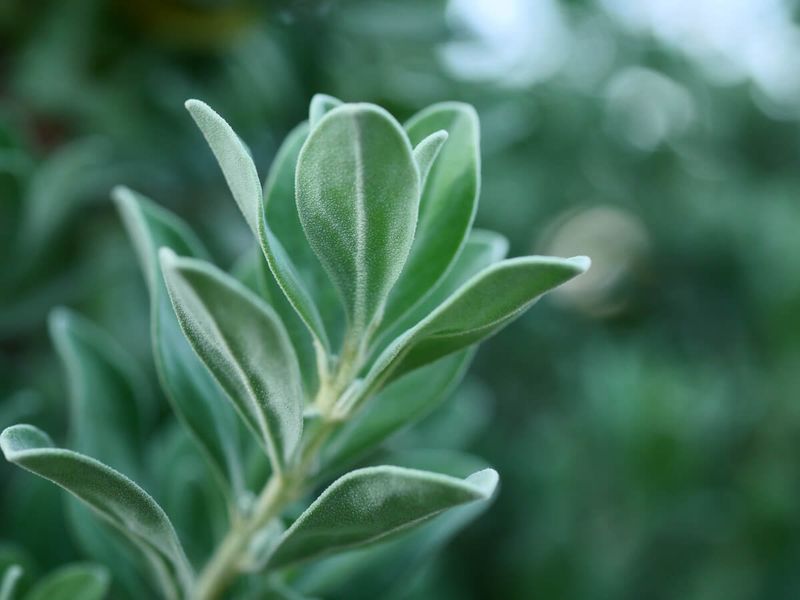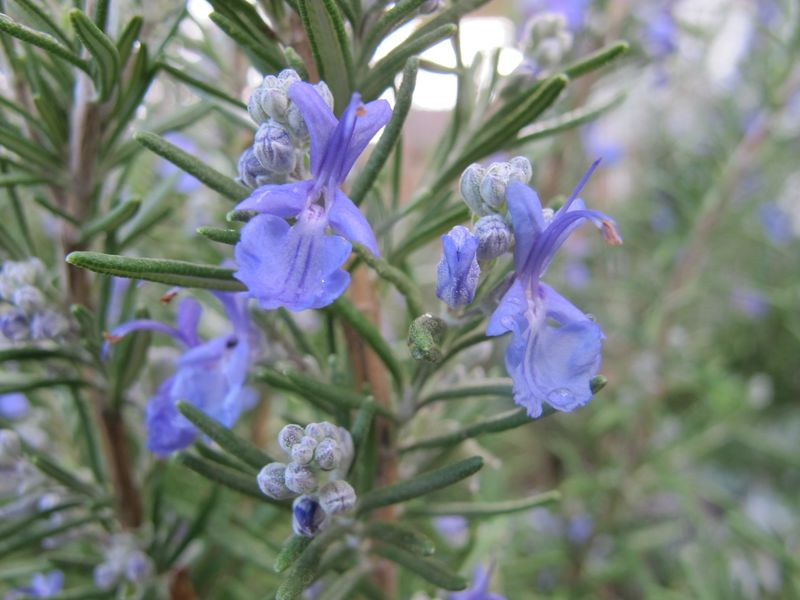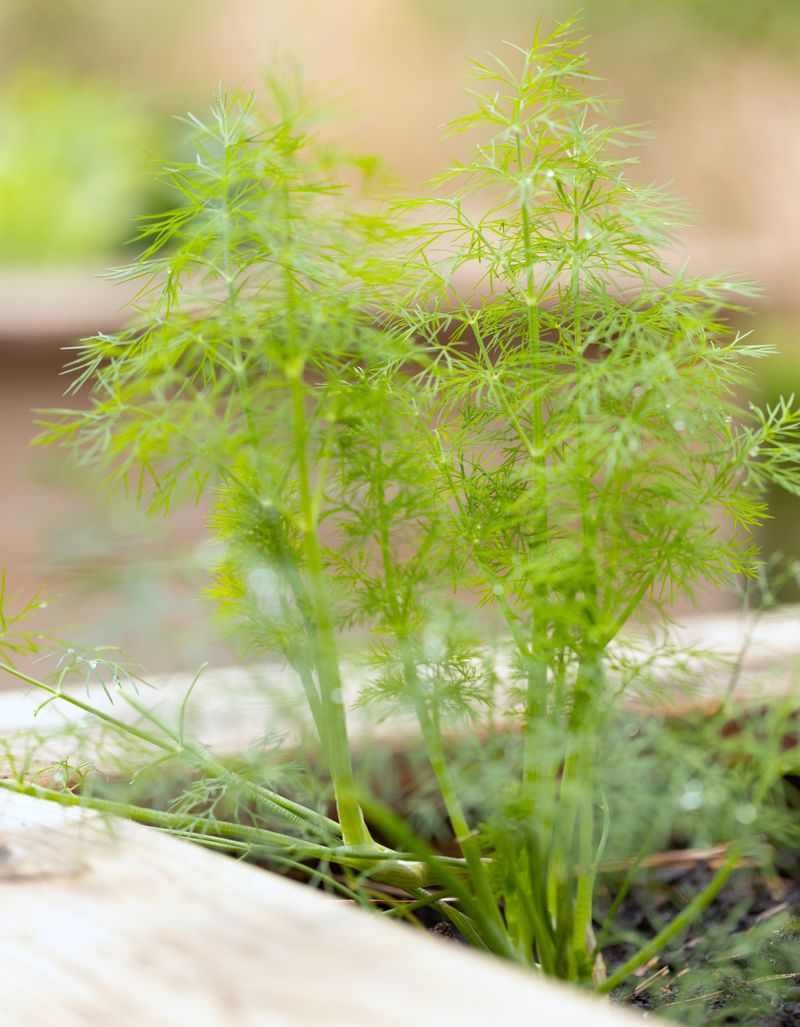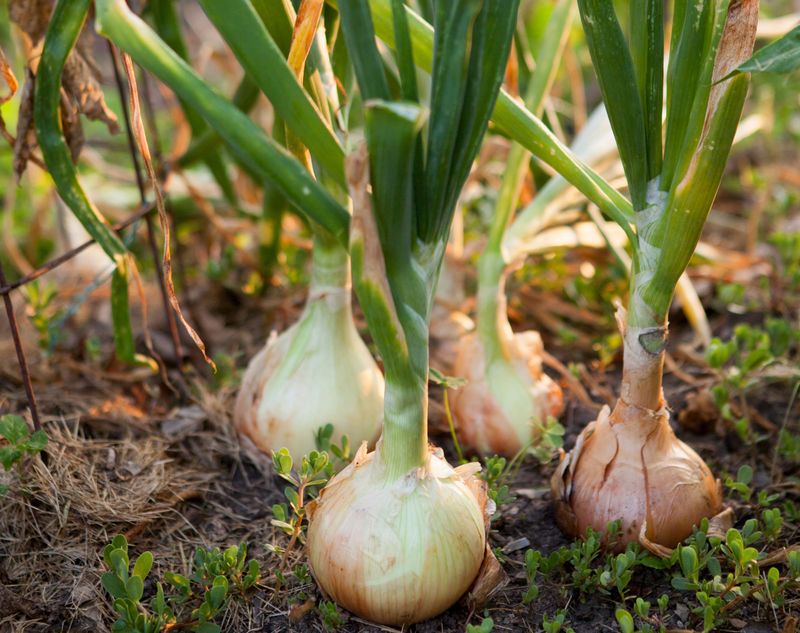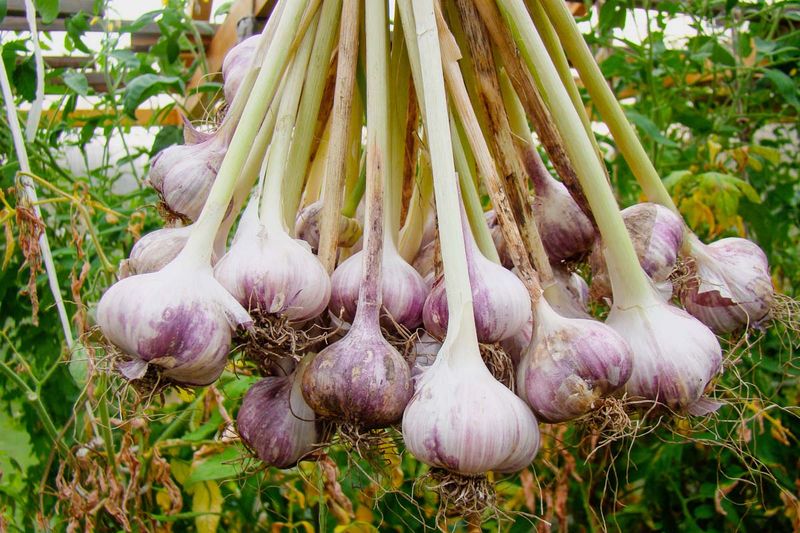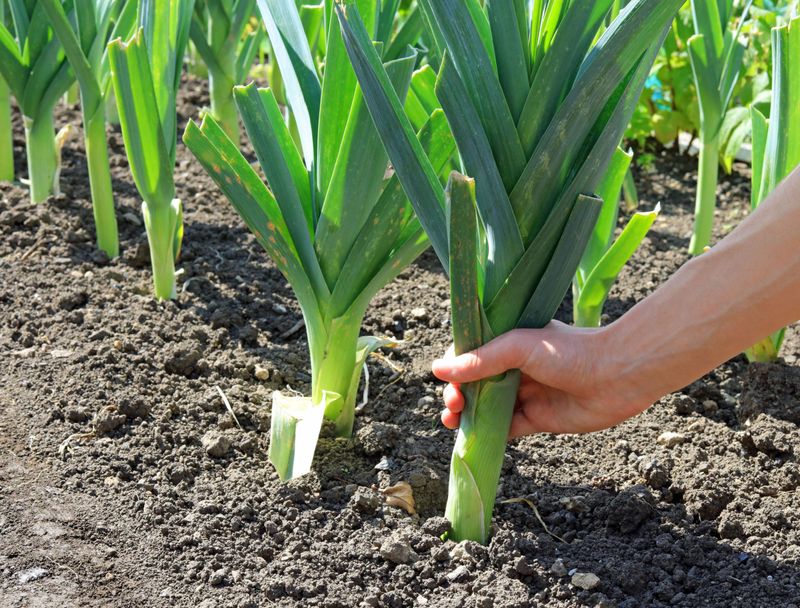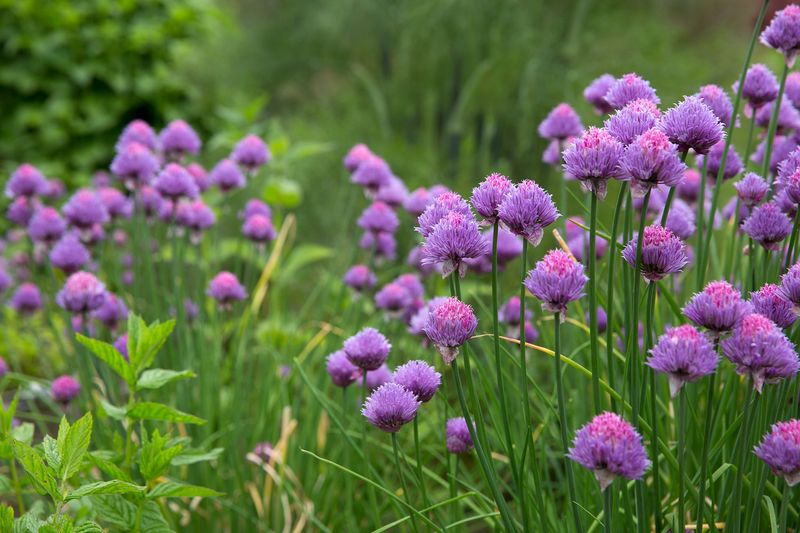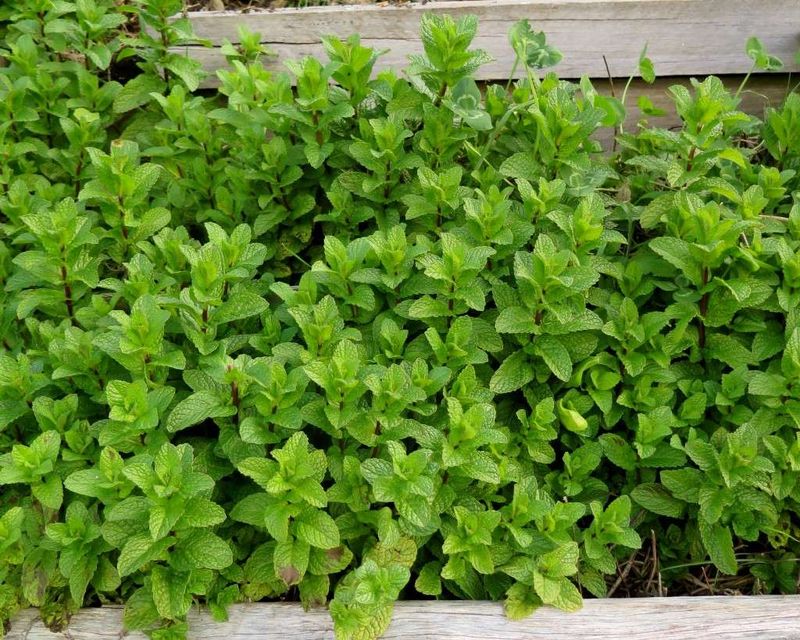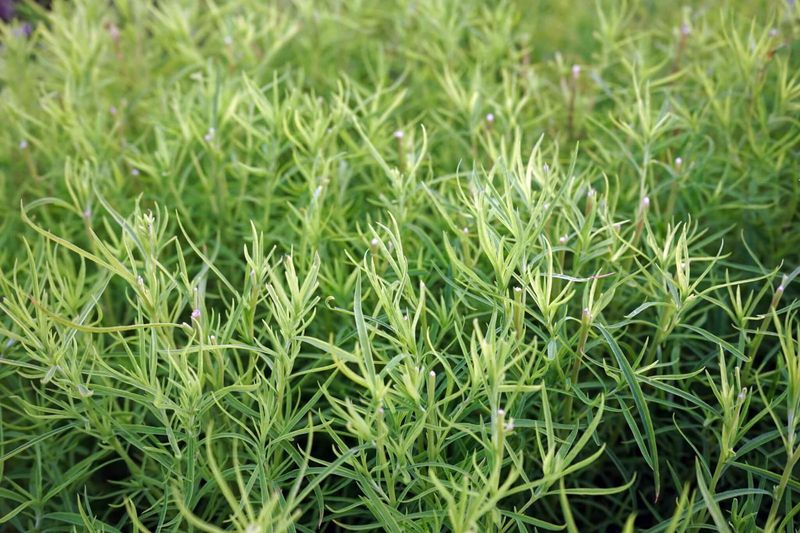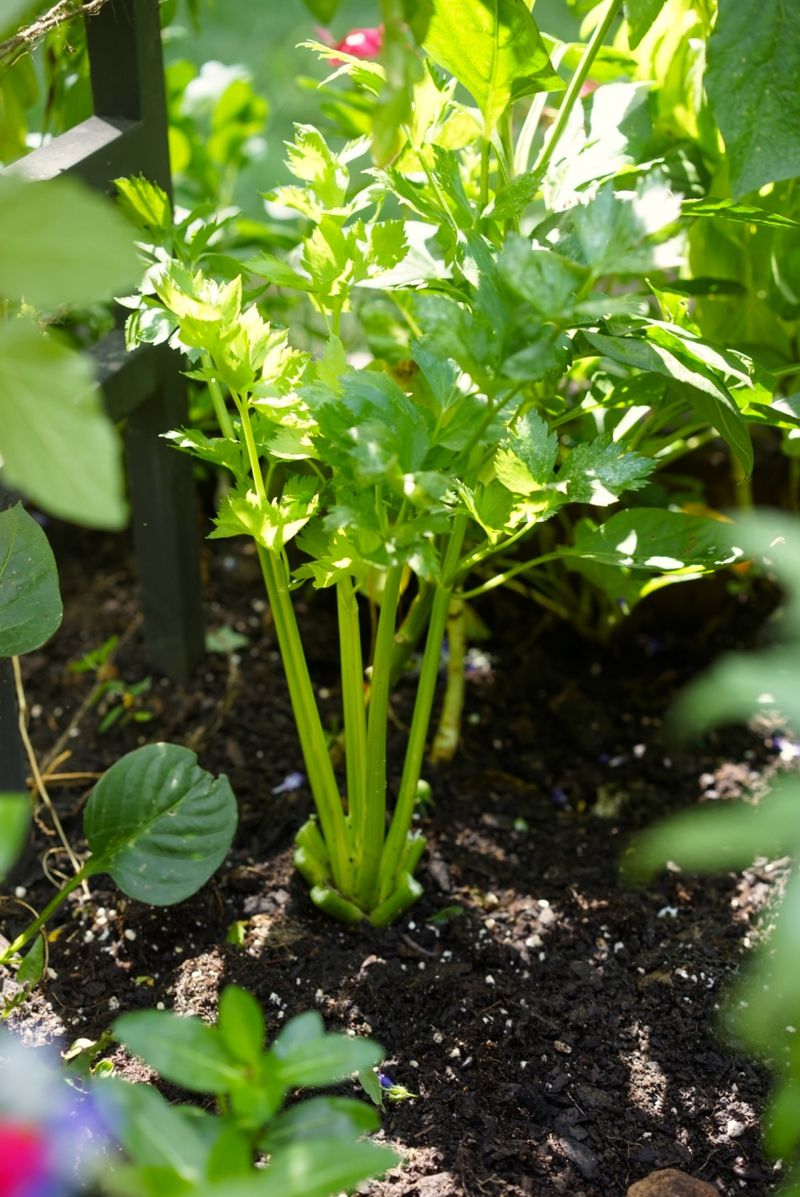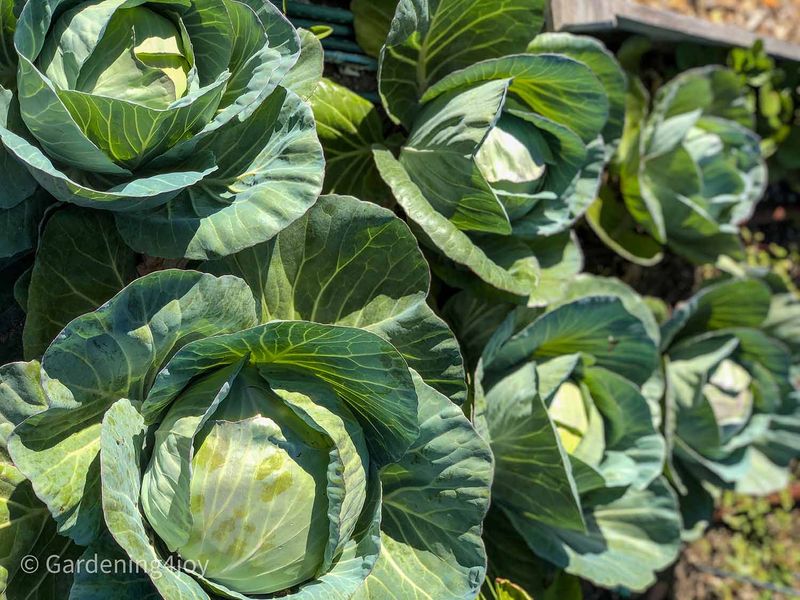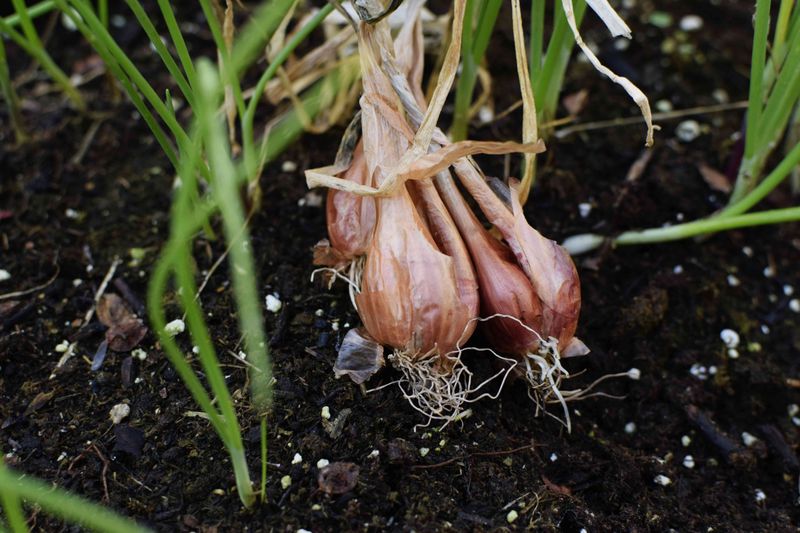When planning your garden, it’s crucial to understand how plant interactions can affect growth. Some plants can be detrimental to cucumbers, inhibiting their growth and affecting crop yield.
Here’s a detailed look at 15 plants you should avoid planting near your cucumbers to ensure a healthy and productive garden.
1. Fennel
Fennel is a lovely herb with feathery leaves and a strong aroma. However, it’s not a good neighbor for cucumbers. Fennel secretes substances from its roots that can inhibit the growth of cucumber plants.
This allelopathic effect can be detrimental to the cucumber’s development. It’s best to plant fennel in a separate area of your garden, away from other vegetables.
Doing this ensures that your cucumbers have the best chance to thrive without the competition or interference from fennel’s root secretions, which can stunt growth.
2. Black Walnut
The Black Walnut tree is known for its majestic appearance and valuable wood, but it’s not a friend to cucumbers. Black Walnut trees produce a chemical called juglone, which is toxic to many plants, including cucumbers.
This toxin can cause wilting and yellowing of cucumber leaves, ultimately leading to plant death. The compound is present in all parts of the tree, but especially in the roots.
To protect your cucumbers, keep them well away from the vicinity of any Black Walnut trees, ensuring their healthy and robust growth.
3. Potato
Potatoes and cucumbers both belong to the nightshade family, and planting them together can encourage the spread of shared pests and diseases. Potatoes can harbor root-knot nematodes, which can spread and affect cucumber roots.
Additionally, blight diseases can transfer between these crops, reducing yields. It’s advisable to plant cucumbers and potatoes in different sections of your garden, ensuring that neither crop is negatively affected by the other’s pests or diseases.
Maintaining this separation helps to foster a healthier garden ecosystem.
4. Sage
Sage is a hardy herb with a distinctive aroma that’s great for culinary uses, but it doesn’t pair well with cucumbers. Sage’s strong scent can confuse and deter pollinators needed for cucumber flowers to set fruit.
Furthermore, sage can compete with cucumbers for nutrients and space, hindering their growth. It’s beneficial to maintain a separate space for sage, allowing cucumbers to flourish without competition or interference.
This separation allows your cucumbers to receive all the attention from pollinators they need, enhancing fruit production.
5. Rosemary
Rosemary is a robust herb, loved for its aromatic leaves, yet its presence can be overwhelming for cucumbers. The intense aroma of rosemary can interfere with cucumber pollination by confusing pollinators.
Moreover, rosemary and cucumbers have differing water and soil requirements, which can lead to competition and resource depletion.
Planting rosemary in pots or separate areas can help mitigate these issues, providing each plant with an environment suited to their needs. This careful placement ensures both plants thrive.
6. Dill
Dill, although often recommended as a companion plant for some vegetables, is not the best choice for cucumbers. Dill can attract pests such as aphids and caterpillars, which may also damage cucumber plants.
Additionally, dill can grow quite tall, overshadowing cucumber plants and competing for sunlight. For the best results, plant dill away from your cucumber patch.
This separation helps prevent pest infestations and ensures that cucumbers receive adequate sunlight for optimal growth, promoting a more productive harvest.
7. Onions
Onions are a staple in many gardens, prized for their culinary versatility, but they’re not ideal companions for cucumbers. The pungent smell of onions can deter pollinating insects crucial for cucumber fruiting.
Furthermore, onions have shallow roots, competing with cucumbers for water and nutrients at the soil’s surface. To mitigate these issues, onions should be planted away from cucumbers, allowing both plants to grow vigorously without hindrance.
This separation supports better pollination and nutrient availability for cucumbers, enhancing their growth potential.
8. Garlic
Garlic is celebrated for its pest-repelling properties, but it’s not suitable for planting near cucumbers. The strong scent of garlic can confuse pollinators, reducing cucumber flower pollination.
Additionally, garlic competes for soil nutrients and space, potentially stunting cucumber growth. For optimal results, plant garlic in a different part of your garden.
This arrangement allows cucumbers to benefit from adequate pollination and nutrient access without competition, ensuring a healthy and productive growing environment for your vegetables.
9. Leeks
Leeks, similar to onions, have an assertive presence that can negatively impact cucumbers. The strong aroma of leeks can repel beneficial pollinators, which cucumbers rely on for fruit production.
Additionally, leeks and cucumbers vie for the same soil nutrients, leading to potential shortages for both. To avoid these issues, allocate separate growing areas for leeks and cucumbers.
This separation ensures that cucumbers receive sufficient pollinator attention and soil resources, contributing to a more abundant harvest and healthier plants overall.
10. Chives
Chives are a flavorful herb often grown in herb gardens, but they don’t mix well with cucumbers. The pungent aroma of chives can deter pollinators from visiting cucumber flowers, which can result in poor fruit set.
Moreover, chives can spread quickly and compete for space and nutrients. For optimal cucumber health, plant chives away from cucumber beds.
This separation ensures that cucumbers receive the pollinator visits they need and have ample space to grow, leading to healthier plants and a more productive garden.
11. Mint
Mint is a vigorous herb known for its refreshing taste and aroma, but it can overtake a garden with ease, making it a poor companion for cucumbers.
Mint’s aggressive spreading habit can quickly crowd out cucumber plants, depriving them of space and nutrients. Additionally, its strong scent can also deter pollinators. Plant mint in containers or isolated areas to keep it contained.
This will prevent it from encroaching on cucumber territory, ensuring cucumbers have enough room and resources to grow robustly.
12. Tarragon
Tarragon is a flavorful herb that adds zest to dishes, but it doesn’t play well with cucumbers. Tarragon can overshadow cucumbers, competing for sunlight and nutrients. Its aromatic oils can also deter pollinators necessary for cucumber fruiting.
To foster a vibrant cucumber crop, plant tarragon well away from cucumber beds. This will allow cucumbers to bask in sunlight and attract the pollinators they need for fruit development, leading to a more successful and prolific harvest.
13. Celery
Celery, though a popular vegetable, is not a great companion for cucumbers. Both celery and cucumbers are heavy feeders, meaning they demand a lot of nutrients from the soil. This competition can lead to nutrient deficiencies for both plants.
Additionally, celery can attract slugs and other pests that may harm cucumbers. For the best results, keep celery in a separate section of the garden.
This will ensure that each plant has access to sufficient nutrients and reduces the risk of pest issues, fostering healthier growth.
14. Cabbage
Cabbage, a hearty cruciferous vegetable, can overshadow cucumbers when planted nearby. The large leaves of cabbage plants can block sunlight, vital for cucumber growth.
Additionally, cabbage can attract caterpillars and slugs that might also target cucumbers. To maintain a thriving cucumber crop, it’s advisable to plant cabbage in a different garden area.
This ensures cucumbers receive adequate sunlight and reduces pest risks, promoting healthier plants and a more bountiful harvest.
15. Shallots
Shallots are a flavorful addition to the kitchen, but they’re not the best garden neighbors for cucumbers. Similar to their onion relatives, shallots can deter pollinators with their strong aroma.
Additionally, shallots and cucumbers both have shallow root systems, leading to competition for water and nutrients. For successful growth, it’s best to plant shallots away from cucumbers.
This separation ensures both plants can access the resources they need without interference, contributing to a more productive and harmonious garden environment.
